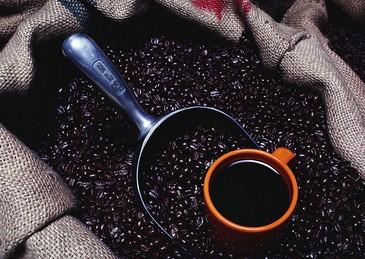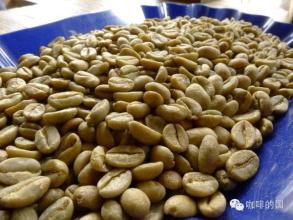The Variety characteristics and Flavor description of Yejia Shifeiwaka Coffee Grinding scale production area
The Variety characteristics and Flavor description of Yejia Shifeiwaka Coffee Grinding scale production area
"Yega Chuefei" refers to strong aromas of jasmine, lemon or green citric acid, as well as sweet peaches, almonds and tea. The author's tasting experience has only one sentence: "Coffee entrance, flowers in full bloom!" Except for the comfort of the taste buds and olfactory cells in the nasal cavity touched by flowers.
Yejaschuffe itself is a small town of about 20, 000 people, and the three neighboring producing areas, Wenago, Kochere and Gelena Abaya, are also classified as Yejasuffe because they produce coffee with almost the same flavor as Yejasuffe.
Yejaschafe is similar to the neighboring Sidamo in both cultural and geographical environment, but it seems to be more favored to enjoy the advantageous conditions, the top quality Yega Chefe coffee, with floral aromas, bright citrus acidity, lemon flavors and silky taste.
Yejassefi's coffee trees were planted by European monks (a bit like Belgian monks growing wheat to brew beer) and were later transferred to farmers or cooperatives. Yejia Chuefei is actually constructed by surrounding coffee communities or cooperatives, including Edido Idido, Hafusa Harfusa, Hama Hama and Biloya near Fog Valley Misty valley, all washed with water, but there are also a small number of off-product beans engraved with sun to enhance the charming fruit aroma and mellow thickness. These mountain villages are foggy, like spring all year round, with a gentle breeze in summer, cool but not hot, rain but not damp, and no cold damage in winter, giving birth to a unique regional flavor of citrus and flowers.
Coffee trees are mostly planted in farmers' own backyard or mixed with other crops in the field, and the yield per household is small, which is a typical pastoral coffee.

Important Notice :
前街咖啡 FrontStreet Coffee has moved to new addredd:
FrontStreet Coffee Address: 315,Donghua East Road,GuangZhou
Tel:020 38364473
- Prev

Introduction of taste and flavor characteristics of Kenyan AA coffee bean varieties
Taste and characteristics of Kenyan aa Coffee Water temperature introduction Kenyan AA coffee is one of the rare good coffees. It is famous for its strong aroma and balanced acidity and is loved by many foodies. It is perfect and balanced, and has a wonderful and strong flavor, fresh and not overbearing, is a kind of
- Next

Grinding scale of Columbia Huilan nectar Coffee Bean by Flavor description
Colombia Huilan nectar coffee bean flavor description method grinding scale Colombia, although Colombia has high-quality coffee, but not necessarily from Colombia is high-quality coffee, for huila producing areas are also the same, huila is an important producing area, but not from huila are all high-quality beans, but there are many producers, under the name of huila
Related
- Detailed explanation of Jadeite planting Land in Panamanian Jadeite Manor introduction to the grading system of Jadeite competitive bidding, Red bid, Green bid and Rose Summer
- Story of Coffee planting in Brenka region of Costa Rica Stonehenge Manor anaerobic heavy honey treatment of flavor mouth
- What's on the barrel of Blue Mountain Coffee beans?
- Can American coffee also pull flowers? How to use hot American style to pull out a good-looking pattern?
- Can you make a cold extract with coffee beans? What is the right proportion for cold-extracted coffee formula?
- Indonesian PWN Gold Mandrine Coffee Origin Features Flavor How to Chong? Mandolin coffee is American.
- A brief introduction to the flavor characteristics of Brazilian yellow bourbon coffee beans
- What is the effect of different water quality on the flavor of cold-extracted coffee? What kind of water is best for brewing coffee?
- Why do you think of Rose Summer whenever you mention Panamanian coffee?
- Introduction to the characteristics of authentic blue mountain coffee bean producing areas? What is the CIB Coffee Authority in Jamaica?

